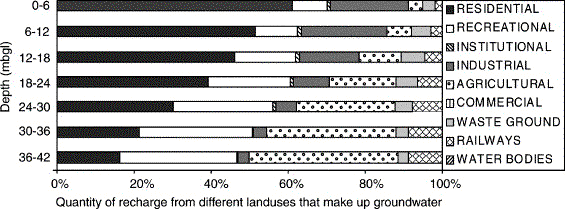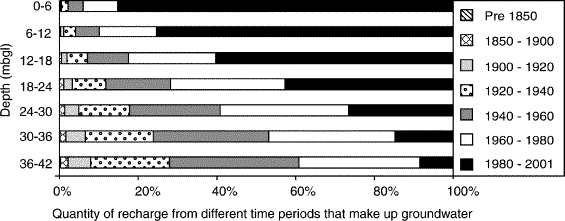
mbgl: meters below ground level
Fig. 4. Modelled percentages of recharge that have originated from different land-use types at depth in the multi-level piezometer.

Fig. 5. Modelled percentages of recharge that have originated from different time periods at depth in the multi-level piezometer.
〔Trowsdale,S.A. and Lerner,D.N.(2007): A modelling approach to determine the origin of urban ground water. Journal of Contaminant Hydrology, 91, 171-183.から〕